This NYC jeweler iced out some of hip-hop’s biggest names. Now his work is at AMNH.
June 20, 2024, 7 a.m.
Avi Davidov runs Pristine Jewelers with his partner Ofir Ben Shimon. If you know, you know.
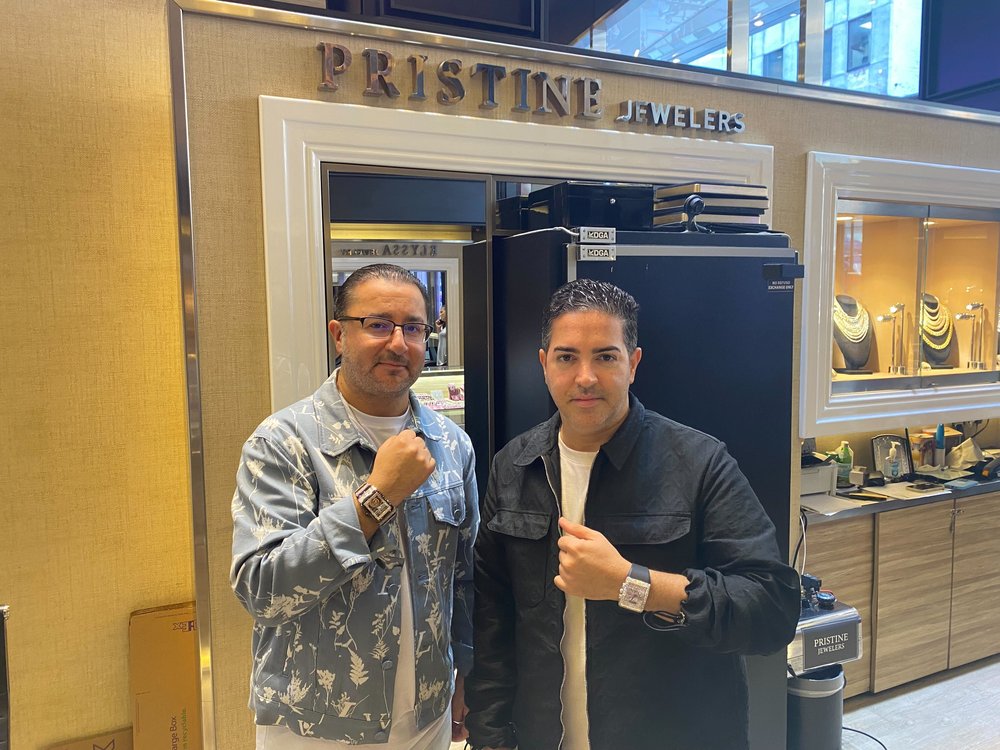
Avi Davidov didn’t expect to become a celebrity in the hip-hop world, let alone have his work displayed at the American Museum of Natural History.
Davidov, who's from Queens, said all he wanted while growing up was financial stability. He thought he’d become a lawyer, but couldn’t shake his love for jewelry, which was also the family business.
For the past decade, Davidov and his close friend Ofir Ben Shimon have run Pristine Jewelers in the Diamond District. It’s the go-to spot for hip-hop stars like Fat Joe, Cardi B and DJ Khaled when they need iced-out jewelry to celebrate major milestones or for red carpet events.
Pristine’s clientele have made Davidov and Ben Shimon celebrities in their own right.
When rapper 2 Chainz proposed to his wife, Kesha Ward, for the second time at the Met Gala in 2018, the ring was designed by Pristine. And if you saw “Bad Boys: Ride or Die,” you may have noticed a diamond-studded watch on DJ Khaled’s wrist. Again, it was by Pristine.
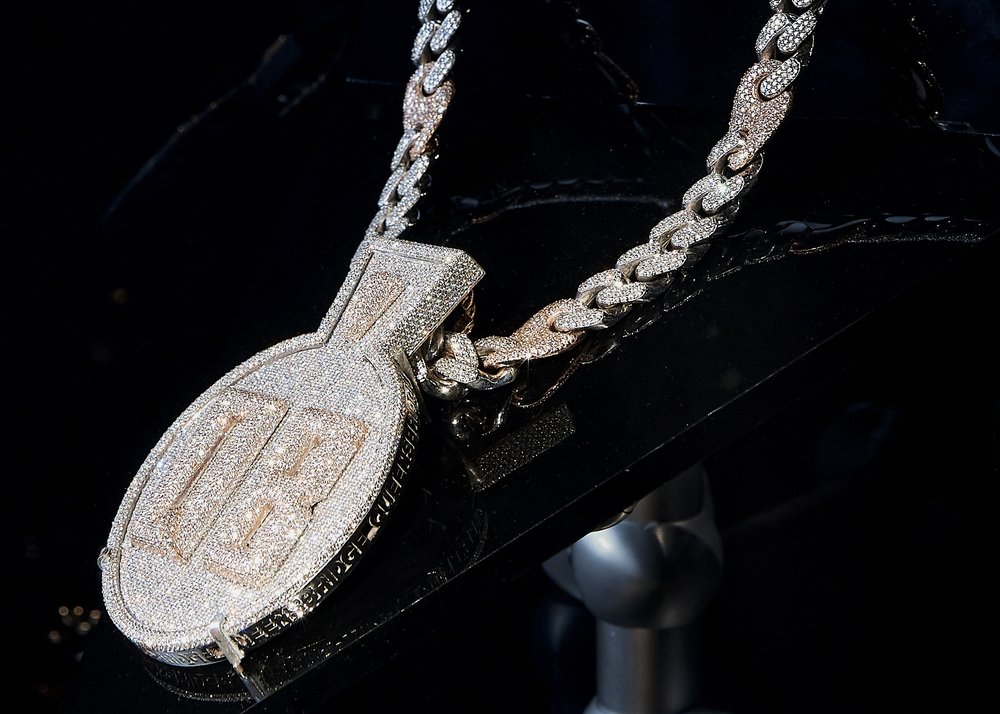
And now some of their work is on display at the American Museum of Natural History as part of its new exhibit, “Ice Cold: An Exhibition of Hip Hop Jewelry.”
It features dozens of pieces worn by hip-hop artists, including Slick Rick, Ghostface Killah, Nicki Minaj, and A$AP Rocky. It also includes two pieces designed by Pristine Jewelers: Nas’ Queensbridge pendant and Fat Joe’s Terror Squad chain.
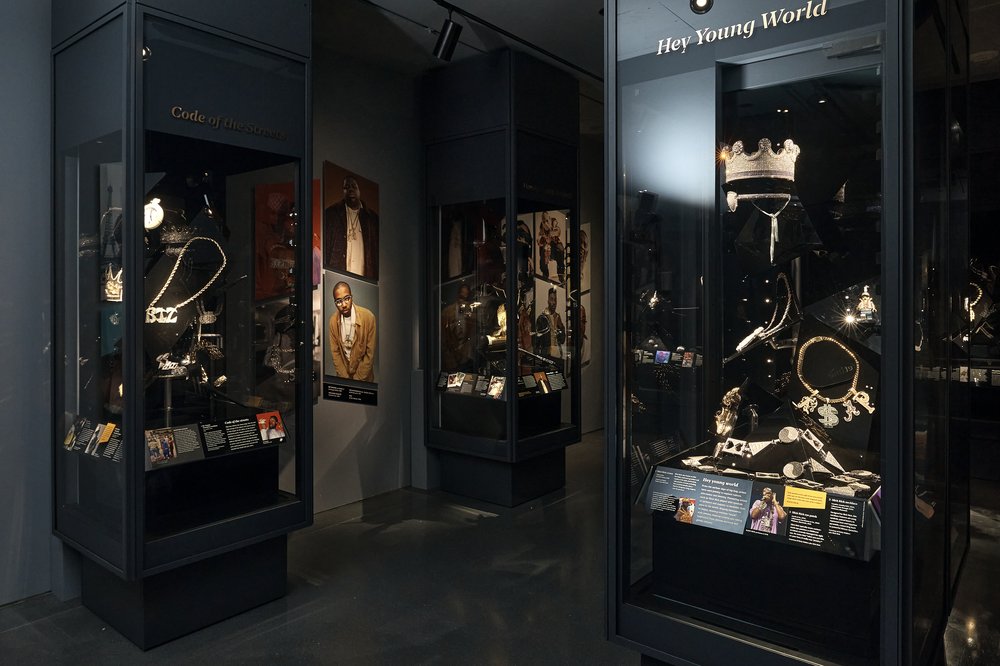
Part of Pristine’s appeal is that its founders can match the swagger of some of their world-famous clients – jetsetting to Portugal, dressing head-to-toe in Louis Vuitton or Dior. As with many luxury brands, Pristine is selling a lifestyle as much as a product.
“It's the way we travel, the kind of shoes and sneakers we wear,” said Davidov, who once traveled to Russia on a day’s notice for a client.
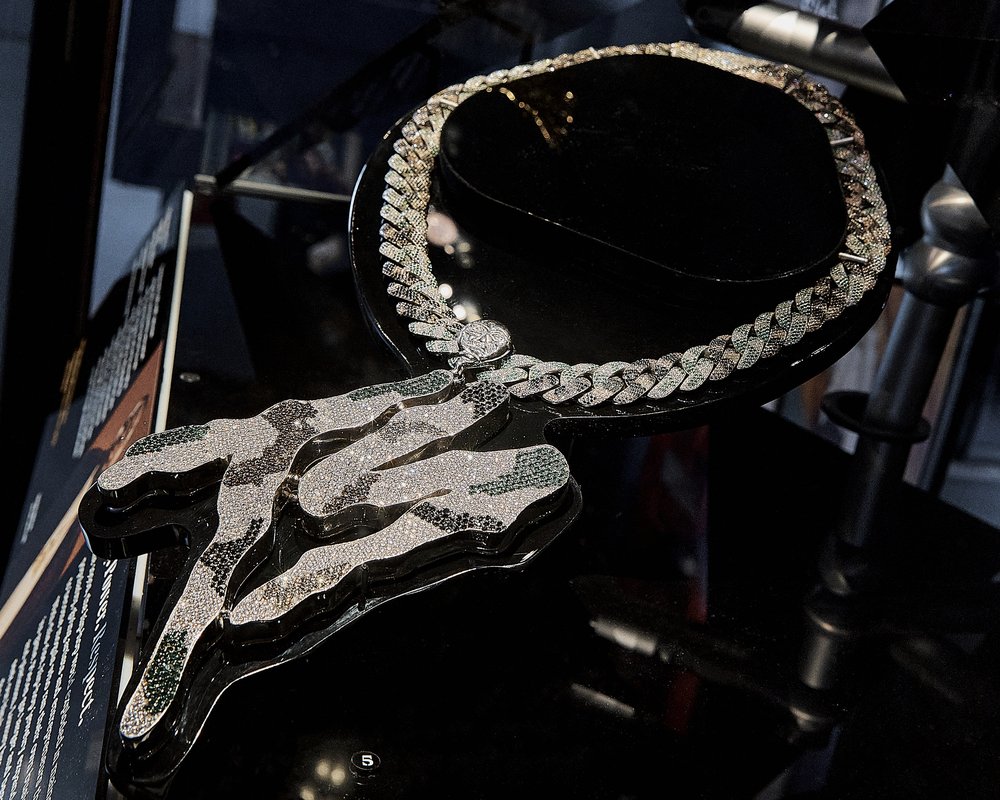
Though Davidov’s circle includes the rich and famous, that wasn’t always the case.
Davidov’s parents immigrated to the United States from Uzbekistan before he was born, and he described his childhood in Queens as “a struggle.”
His parents worked in the jewelry industry for more than 30 years, selling engagement rings and necklaces, with mixed success. When they opened their shop on Fordham Road in the Bronx, he’d work there most days after school.
“As we were growing older, my sister and I, we saw their hardships, so we decided to help them out,” said Davidov. “And while we were helping them out, we learned more of the trade, more of the business. And I liked it.”
Davidov figured early on that he could bring more financial stability to his parents’ shop. He envisioned having his own watch line, and he thought he could bring them more clients.
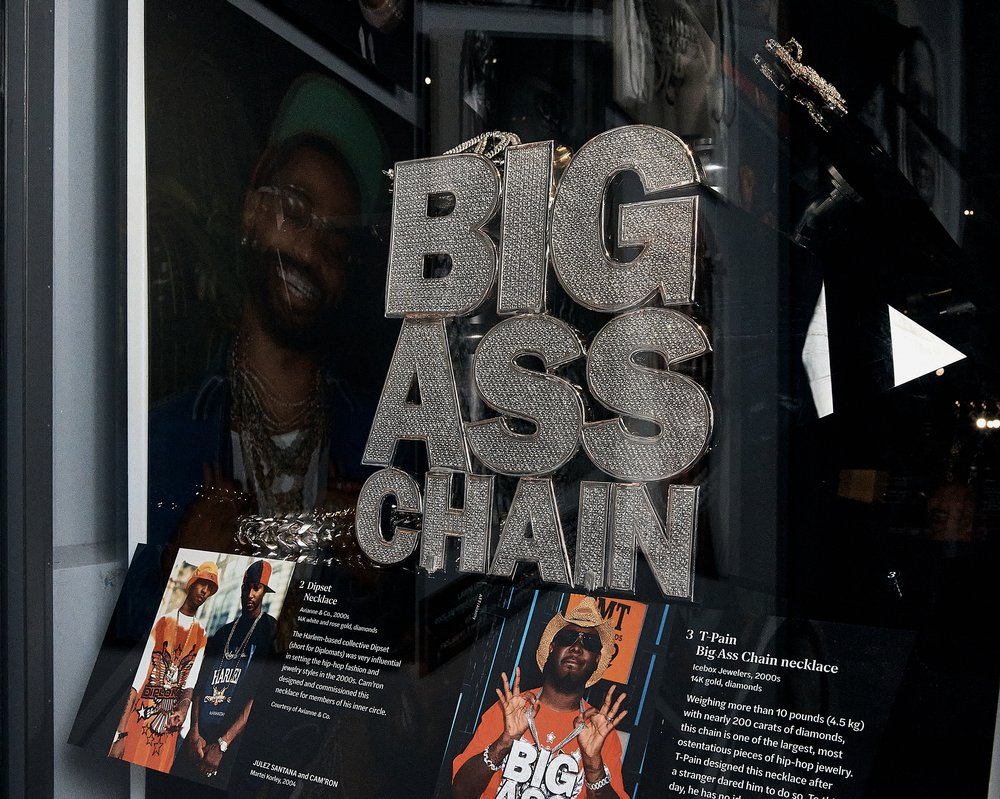
When he was around 16, he decided to venture out on his own. He started out identifying his market – at that time, he said it was the Latino community in the Bronx – then sorting stones, setting diamonds and eventually, designing pieces of his own.
Early in his career, he made “bust down” watches, in which the face is disassembled and the jeweler sprinkles diamonds over it.
His big break came in the early 2000s, he said, with an order for Puerto Rican rapper and actor Don Omar. Davidov designed custom-made pieces for him, including diamond watches.
After that, word spread and the orders started flying in.
Another win happened a few years later, when Davidov was tapped to upgrade Nas’ Queensbridge pendant, which became a nod to the ‘Illmatic’ rapper's success, and is featured in the “Ice Cold” exhibition.
“Ice Cold” examines the importance of statement jewelry in the hip-hop world and celebrates the genre’s cultural influence. It also follows the evolution of jewelry in hip-hop, from oversized gold chains in the 1980s to the record label pendants that became popular in the 2000s.
Vikki Tobak, the guest curator of the exhibition, said Davidov's hustle and maneuvering of work relationships mirrors that of many early jewelers in hip-hop, who were mostly immigrants or the children of immigrants.
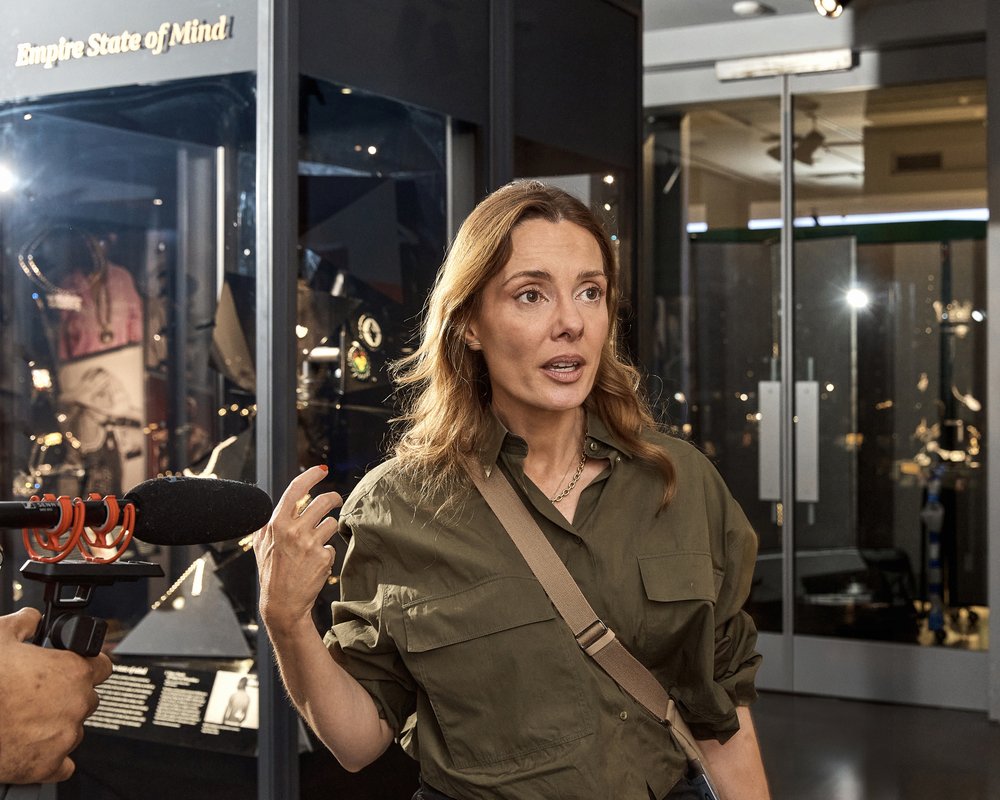
“You're kind of ingrained with this hustle mentality,” she said. “You will make it by any means necessary.”
“And that's very much hip-hop and that's very much the mentality of these jewelers,” she said. “You think fast, you think on your feet and I think that's something that they really have in common and recognize in each other.”
Davidov said many of the artists he works with grew up with nothing, like he did.
He said that hip-hop stars love his pieces because they see them as "trophies" to show "that they made it."
Today, Avi Davidov and Ben Shimon are working on a new and “much bigger” storefront, which will be called Pristine 2.0. And they continue working on new designs for their watch line, Pristine Timepieces, which launched four years ago.
Davidov said, most importantly, they’re focused on maintaining their clientele and creating jewelry pieces that help their clients stand out in the world.
“Our clients have to look different,” said Davidov.
I’m visiting all 350 of NYC’s neighborhoods. Here’s some of what I’ve learned so far. An upstate NY program lets you camp out with wolves, so I tried it